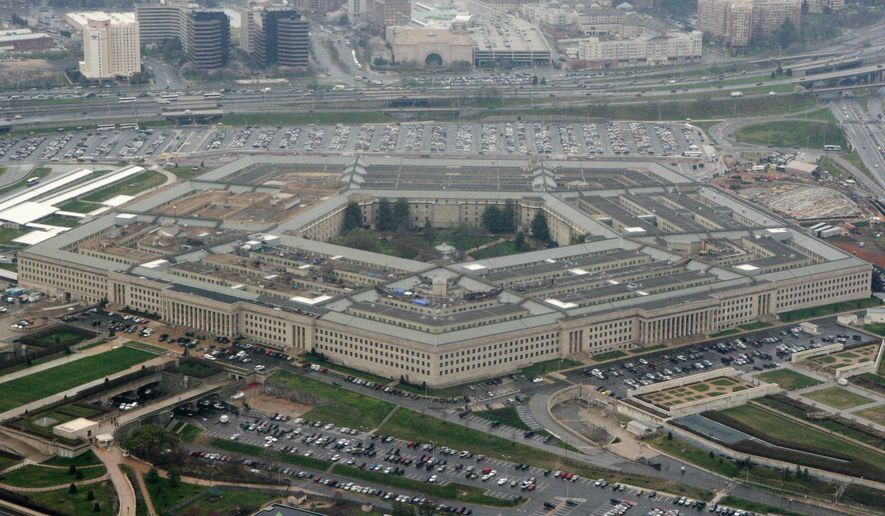The Defense Department’s research and development arm is poised to receive billions of dollars in funding originally intended for other agencies developing tech to counter China — without asking for it.
The flood of taxpayer money is flowing amid bipartisan fears that Beijing is compromising more government-funded scientists seeking to obtain American technical innovations. Those fears may soon translate into a huge budget increase for the Defense Advanced Research Projects Agency (DARPA).
The Senate is considering amendments to Democratic Majority Leader Charles E. Schumer’s bill to fund tech innovation to outcompete China. The bill initially proposed $100 billion for the National Science Foundation (NSF), the federal agency in charge of basic scientific research. A bitter fight over the funding ensued as Republicans like Sen. Rob Portman of Ohio and Sen. Marco Rubio of Florida expressed concern that the money could instead wind up in the pockets of scientists cooperating with the Chinese government.
Mr. Rubio then floated the idea of giving money to DARPA instead and Sen. Ben Sasse, Nebraska Republican, offered an amendment this week to double DARPA’s budget to $7 billion.
DARPA officials told The Washington Times they did not work with the GOP lawmakers on the funding shift but would welcome the influx of cash.
“DARPA representatives have not held any conversations with Senators Rubio and Sasse regarding the Innovation and Competition Act, and feel it would be inappropriate to comment on pending legislation other than to note that we deeply appreciate the lawmakers’ recognition of the agency’s ability to drive innovation, advance U.S. interests, and be good stewards of taxpayer dollars,” said Jared Adams, DARPA spokesperson, in an email.
A Senate source said testimony by leaders of the National Security Commission on Artificial Intelligence to the Senate Select Committee on Intelligence, on which both Mr. Rubio and Mr. Sasse sit, played a key role in the proposed massive DARPA funding bump. The commission recently issued a report warning that the U.S. must greatly raise its spending to avoid falling behind China in critical AI technologies.
The commission, created by Congress in 2018, is chaired by former Google CEO Eric Schmidt with members elected by members of Congress, the secretary of defense, and the secretary of commerce.
“The NSCAI submitted its Final Report recommendations on March 1. Since then, we have been working with Congress to include the Commission’s recommendations in legislation and will continue to work with them through the summer,” said Tara Rigler, NSCAI spokesperson in an email.
Details on appropriations for research and development are difficult to come by. DARPA representatives are meeting in a closed hearing with a House Armed Services subcommittee on Thursday to discuss what they want for the coming fiscal year.
DARPA’s track record may have made lawmakers comfortable trusting it with more research money than the NSF. DARPA has gotten credit for contributing to the production of COVID-19 vaccines, while the NSF has faced scrutiny for its ability to safeguard government-funded research.
“[T]he first coronavirus vaccine to start human testing came from a DARPA investment in Moderna. DARPA’s ability to substantially contribute to our nation’s response to pandemics is the product of more than half a century of [Department of Defense science and technology] funding,” said Rep. James Langevin, Rhode Island Democrat and chair of the armed services subcommittee, at an open hearing on Thursday. “If we wait to invest in science only when a crisis is upon us, then we are setting the nation up for failure.”
The NSF has repeatedly defended its security controls and previously told The Washington Times it has recouped millions of dollars since March 2020 when it created a chief of research security, strategy and policy position.
Last month, the Justice Department charged math professor and university researcher Mingqing Xiao with wire fraud and alleged that he hid Chinese government funding while getting funding from the NSF.
He is hardly the only U.S. government-funded scientist under investigation. The National Institutes of Health told Congress last month that 500 scientists were under investigation for being compromised by China and other foreign powers.
• Ryan Lovelace can be reached at rlovelace@washingtontimes.com.




Please read our comment policy before commenting.